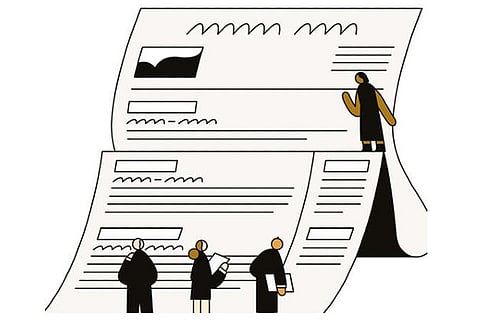

New York
“My mind would jump to the negative stigma of ‘Wow, why could this person not get a job for this long?’” said Baxter, who is chief executive of Qwick, a temporary staffing company for the hospitality industry. Yet recently, he has hired at least half a dozen people who had been out of work for several months or longer.
The pandemic, he said, “made me open my eyes.” Baxter’s change of heart reflects an apparent willingness among employers in the pandemic era to hire applicants who have been jobless for long periods.
That’s a break from the last recession when long-term unemployment became self-perpetuating for millions of Americans. People who had gone without a job for months or years found it very difficult to find a new one, in part because employers avoided them.
The importance of what is often referred to as “resume gaps” is fading, experts say, because of labor shortages and more bosses seeming to realize that long absences from the job market shouldn’t taint candidates.
This is good news for the 2.2 million people who have been out of work for more than six months, and are considered long-term unemployed, according to the Labor Department, double the number before the pandemic.
But that change may not last if more people decide to return to the job market or if the economy cools because of another wave of coronavirus cases, experts say. Baxter, whose company is based in Phoenix, said he has learned from his own experience.
Forced to lay off roughly 70 percent of his 54 employees when the pandemic hit, he realized he was responsible for creating the very employment gaps he had once used to screen out job applicants. “I knew I was creating employment gaps,” he said. “Maybe other people would have employment gaps for very justifiable reasons. It doesn’t mean that they are not a good employee.”
Even in normal times, the long-term unemployed face steep odds.
The longer applicants are out of work, the more they may become discouraged and the less time they may spend searching for jobs. Their skills may deteriorate or their professional networks may erode. Some employers regard applicants with long periods of unemployment unfavorably, research shows — even if many are reluctant to admit it.
“Employers don’t often articulate why but the idea, they believe, is that people who are out of work are damaged in some way, which is why they are out of work,” said Peter Cappelli, the director of the Center for Human Resources at the Wharton School of the University of Pennsylvania.
Some economists believe the pandemic’s unique effects on the economy may have changed things. Notably, the pandemic destroyed millions of jobs seemingly all at once, especially in the travel, leisure, and hospitality industries.
Many people could not, or chose not to, work because of health concerns or family responsibilities.
“For people who were just laid off because of Covid, will there be a stigma? I don’t really think so,” Cappelli said. Although monthly job-finding rates plummeted for both the short- and long-term unemployed during the early part of the pandemic, the rate for the long-term jobless has since rebounded to roughly the same level as before the pandemic, according to government data. While that does not imply the employment-gap stigma has disappeared, it suggests it is no worse than it has been.
Visit news.dtnext.in to explore our interactive epaper!
Download the DT Next app for more exciting features!
Click here for iOS
Click here for Android